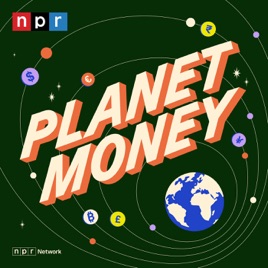
Advertise on podcast: Planet Money
Rating
4.6 from
Country
This podcast has
411 episodes
Language
Publisher
Explicit
No
Date created
2008/09/09
Average duration
22 min.
Release period
3 days
Description
Wanna see a trick? Give us any topic and we can tie it back to the economy. At Planet Money, we explore the forces that shape our lives and bring you along for the ride. Don't just understand the economy – understand the world.Wanna go deeper? Subscribe to Planet Money+ and get sponsor-free episodes of Planet Money, The Indicator, and Planet Money Summer School. Plus access to bonus content. It's a new way to support the show you love. Learn more at plus.npr.org/planetmoney
Social media
Check Planet Money social media presence
Podcast episodes
Check latest episodes from Planet Money podcast
A controversial idea at the heart of Bidenomics
2024/02/23
Réka Juhász is a professor of economics at the University of British Columbia, and she studies what's known as industrial policy.
That's the general term for whenever the government tries to promote specific sectors of the economy. The idea is that they might be able to supercharge growth by giving money to certain kinds of businesses, or by putting up trade barriers to protect certain industries. Economists have long been against it. Industrial policy has been called a "taboo" subject, and "one of the most toxic phrases" in economics. The mainstream view has been that industrial policy is inefficient, even harmful.
For a long time, politicians largely accepted that view. But in the past several years, countries have started to embrace industrial policy—most notably in the United States. Under President Biden, the U.S. is set to spend hundreds of billions of dollars on industrial policy, to fund things like microchip manufacturing and clean energy projects. It's one of the most ambitious tests of industrial policy in U.S. history. And the billion dollar question is ... will it work?
On today's show, Réka takes us on a fun, nerdy journey to explain the theory behind industrial policy, why it's so controversial, and where President Biden's big experiment might be headed.
Help support Planet Money and get bonus episodes by subscribing to Planet Money+ in Apple Podcasts or at plus.npr.org/planetmoney.
Learn more about sponsor message choices: podcastchoices.com/adchoices
NPR Privacy Policy
more
Two Indicators: Economics of the defense industry
2024/02/21
The Department of Defense's proposed budget for 2024 is $842 billion. That is about 3.5% of the U.S.'s GDP. The military buys everything from pens and paper clips to fighter jets and submarines. But the market for military equipment is very different from the commercial market.
On today's episode, we're bringing you two stories from The Indicator's series on defense spending that explore that market. As the U.S. continues to send weapons to Ukraine and Israel, we first look at why defense costs are getting so high. Then, we dive into whether bare-bones manufacturing styles are leaving the U.S. military in a bind.
The original Indicator episodes were produced by Cooper Katz McKim with engineering from Maggie Luthar and James Willetts. It was fact-checked by Sierra Juarez and Angel Carreras. They were edited by Kate Concannon and Paddy Hirsch. Alex Goldmark is Planet Money's executive producer.
Help support Planet Money and get bonus episodes by subscribing to Planet Money+ in Apple Podcasts or at plus.npr.org/planetmoney.
Learn more about sponsor message choices: podcastchoices.com/adchoices
NPR Privacy Policy
more
Extended Play: Al Roth on money and 'repugnant markets' (Planet Money+)
2024/02/19
Repugnant markets. We heard about them from economist Al Roth in a recent Planet Money episode. These are markets that aren't allowed because people feel icky about putting a price on something. For example, it's basically illegal to buy and sell kidneys in much of the world. In today's bonus episode, Mary Childs talks with Al about other repugnant markets that didn't make it into the original show, like surrogacy and blood plasma. They also discuss how money can change relationships.You can hear that original Planet Money episode here:https://www.npr.org/1197956769Show your support for Planet Money and the reporting we do by subscribing to Planet Money+ in Apple Podcasts or at plus.npr.org. You'll be able to unlock this episode and other great bonus content. Regular episodes remain free to listen! Email the show at planetmoney@npr.org.
more
How the Navy came to protect cargo ships
2024/02/16
The Genco Picardy is not an American ship. It doesn't pay U.S. taxes, none of its crew are U.S. nationals, and when it sailed through the Red Sea last month, it wasn't carrying cargo to or from an American port.
But when the Houthis, a tribal militant group from Yemen, attacked the ship, the crew called the U.S. Navy. That same day, the Navy fired missiles at Houthi sites.
On today's show: How did protecting the safe passage of other countries' ships in the Red Sea become a job for the U.S. military? It goes back to an idea called Freedom of the Seas, an idea that started out as an abstract pipe dream when it was coined in the early 1600s – but has become a pillar of the global economy.
This episode was hosted by Alex Mayyasi and Nick Fountain. It was produced by Sam Yellowhorse Kesler, edited by Molly Messick, fact-checked by Sierra Juarez, and engineered by Valentina Rodríguez Sánchez, with help from Maggie Luthar. Alex Goldmark is Planet Money's executive producer.
Help support Planet Money and get bonus episodes by subscribing to Planet Money+ in Apple Podcasts or at plus.npr.org/planetmoney.
Learn more about sponsor message choices: podcastchoices.com/adchoices
NPR Privacy Policy
more
It's giving ... Valentines
2024/02/15
L, is for the way you Listen to Planet MoneyO, is for the Only podcast I hearV, is Very, very, fiduciaryE, is for... ECONOMICS!
Every February, we dedicate a show to the things in our lives that have been giving us butterflies. Whether it's an obscure online marketplace or a piece of stunt journalism that made us green with envy. And then we go out into the world to proclaim our love...in the form of a Valentine. And we have a great roster this Valentine's Day:
- A grocery store in Los Angeles with the very best produce - A woodworking supply company with an innovative approach to... innovation!- A basketball player that makes a strong case for taking risky shots- A book that catalogues the raw materials that shape our world- A play that connects the 2008 financial crisis to the sale of the island of Manhattan in the 1600s- And, a podcast that turns corporate intrigue into watercooler chit-chat
So cozy up with a special someone and hand them the second earbud as we take you through our 2024 Valentines!Help support Planet Money and get bonus episodes by subscribing to Planet Money+ in Apple Podcasts or at plus.npr.org/planetmoney.
Learn more about sponsor message choices: podcastchoices.com/adchoices
NPR Privacy Policy
more
Planet Money+ listeners: tell us what you think
2024/02/13
We want your feedback on Planet Money+ bonus episodes! Listen to get the link to our super short survey for Planet Money+ supporters. It's just 5 questions. Your answers will be a huge help! You can sign up for Planet Money+ in Apple Podcasts or atplus.npr.org/planetmoney. You get bonus content and sponsor-free listening. Regular episodes remain free to listen! Email the show at planetmoney@npr.org.
more
A lawsuit for your broken heart
2024/02/09
Keith King was upset when his marriage ended. His wife had cheated, and his family broke apart. And that's when he learned about a very old type of lawsuit, called a heart balm tort. A lawsuit that would let him sue the man his now ex-wife had gotten involved with during their marriage.
On this episode, where heart balm torts came from, what relationships looked like back then, and why these lawsuits still exist today (in some states, anyway.) And also, what happened when Keith King used a heart balm tort to try to deal with the most significant economic entanglement of his life: his marriage.
This episode was hosted by Erika Beras and Sarah Gonzalez. It was produced by Emma Peaslee and edited by Molly Messick. It was fact-checked by Sierra Juarez and engineered by Gilly Moon. Alex Goldmark is Planet Money's executive producer.
Help support Planet Money and get bonus episodes by subscribing to Planet Money+ in Apple Podcasts or at plus.npr.org/planetmoney.
Learn more about sponsor message choices: podcastchoices.com/adchoices
NPR Privacy Policy
more
Morally questionable, economically efficient
2024/02/07
There are tons of markets that don't exist because people just don't want to allow a market – for whatever reason, people feel icky about putting a price on something. For example: Surrogacy is a legal industry in parts of the United States, but not in much of the rest of the world. Assisted end-of-life is a legal medical transaction in some states, but is illegal in others.
When we have those knee-jerk reactions and our gut repels us from considering something apparently icky, economics asks us to look a little more closely.
Today on the show, we have three recommendations of things that may feel kinda wrong but economics suggests may actually be the better way. First: Could the matching process of organ donation be more efficient if people could buy and sell organs? Then: Should women seek revenge more often in the workplace? And finally, what if insider trading is actually useful?
This episode was hosted by Mary Childs and Greg Rosalsky. It was produced by Willa Rubin and edited by Jess Jiang. It was engineered by Cena Loffredo. Fact-checking by Sierra Juarez. Alex Goldmark is Planet Money's executive producer.
Help support Planet Money and get bonus episodes by subscribing to Planet Money+ in Apple Podcasts or at plus.npr.org/planetmoney.
Learn more about sponsor message choices: podcastchoices.com/adchoices
NPR Privacy Policy
more
How our resident TikToker makes econ go viral (Planet Money+)
2024/02/06
If you've seen Planet Money's TikTok videos, you've seen the work of producer Jack Corbett. He writes them, acts in them, and shoots them on his iPhone. Their lo-fi aesthetic and goofy humor explaining the economy have racked up millions of views on social media. On today's bonus episode, Alexi Horowitz-Ghazi talks with Jack about how he makes economics go viral. Check out our TikTok videos here:https://www.tiktok.com/@planetmoneyShow your support for Planet Money and the reporting we do by subscribing to Planet Money+ in Apple Podcasts or at plus.npr.org. You'll be able to unlock this episode and other great bonus content! Email the show at planetmoney@npr.org.
more
Groundhog Day 2024: Trademark, bankruptcy, and the dollar that failed
2024/02/02
It's Groundhog Day, and the eyes of the nation have turned to a small town in western Pennsylvania. And, just like last year, all anyone can talk about is Punxsutawney Phil! It is impossible to find a news story that is not about one furry prognosticator.
Well, almost impossible...
Once again, our Planet Money hosts find themselves trapped in the endless Groundhog Day news cycle, and their only way out is to discover an economics story from Groundhog Day itself interesting enough to appease the capricious Groundhog Gods!
So rise and shine campers (and don't forget your booties) as hosts Kenny Malone and Amanda Aronczyk scour the news of February 2nds past, to try to find the perfect story.
This episode was hosted by Kenny Malone and Amanda Aronczyk. It was produced by Sam Yellowhorse Kesler. It was edited by Keith Romer, and engineered by Valentina Rodríguez Sánchez. It was fact-checked by James Sneed. Our executive producer is Alex Goldmark.
Help support Planet Money and get bonus episodes by subscribing to Planet Money+ in Apple Podcasts or at plus.npr.org/planetmoney.
Learn more about sponsor message choices: podcastchoices.com/adchoices
NPR Privacy Policy
more
The Chicken Tax (Classic)
2024/01/31
Note: This episode originally ran in 2015.
German families in the 60s loved tasty, cheap American-raised chicken that was suddenly coming in after the war. And Americans were loving fun, cheap Volkswagen Beetles. This arrangement was too good to last.
Today on the show, how a trade dispute over frozen chicken parts changed the American auto industry as we know it.
This episode was reported by Robert Smith and Sonari Glinton. It was produced by Frances Harlow.
Help support Planet Money and get bonus episodes by subscribing to Planet Money+ in Apple Podcasts or at plus.npr.org/planetmoney.
Learn more about sponsor message choices: podcastchoices.com/adchoices
NPR Privacy Policy
more
Bonus: Janet Yellen on Wait Wait...Don't Tell Me!
2024/01/29
Our friends at NPR's news quiz Wait Wait...Don't Tell Me! recently had a very Planet Money guest on their show: Treasury Secretary Janet Yellen. They asked her about smoking pot, her extremely high scores in Candy Crush, and when to expect the Harriet Tubman $20 bill.
Today, we're sharing an excerpt of that episode with you, along with some exclusive questions just for Planet Money listeners.
You can listen to the full show and subscribe to Wait Wait...Don't Tell Me! wherever you find your podcasts.
Help support Planet Money and get bonus episodes by subscribing to Planet Money+ in Apple Podcasts or at plus.npr.org/planetmoney.
Learn more about sponsor message choices: podcastchoices.com/adchoices
NPR Privacy Policy
more
Podcast reviews
Read Planet Money podcast reviews
Whathefungus
2024/02/04
Easy to digest, factual and fun
One of the best shows out there! I have been so impressed by there ability to take certain experiments and concepts into the real world. What they did...
more
Skheir11
2024/02/23
Supports genocide
In the latest episode, they mentioned Israel “defending itself” from Hamas. This is support of the genocide of the Palestinian people. I did love list...
more
Exir109
2024/02/15
Is just gotten bad.
Goofy laughing and the Spanish accent is annoying on a podcast. Sorry; guess I’m just not “woke” enough.
fullyinformed parent
2024/02/08
Morally questionable, economically efficient
good show. Interesting topics and perspectives. I am surprised though that one of the issues raised with legalizing the organ market wasn’t the use of...
more
SKNEIL
2024/02/08
“Insider trading is good actually”
Is the take that made me unsubscribe… the fact that they want me to believe that insider trading would MORE efficiently allocate resources was just th...
more
Bankruptered
2024/02/04
Moving on
I’ve listened to a lot of Planet Money episodes. Aside from questionable economic reporting/education, plan to skip the first 6 minutes. After that it...
more
😀😁😃😆😄😃😁😀😃😀😁😍😍😍
2024/02/01
Great show
Great show really fun, makes economics more fun don’t listen to the negative reviews.
ne0g0
2024/01/27
Great stories
Love hearing these great stories tied to economic issues. What a pro show!
realitystrikesback
2024/01/30
Pure propaganda
Change your name to planet propaganda.
lovely little kitten💕
2024/01/26
Love
I love Planet Money despite of all the comments.
Podcast sponsorship advertising
Start advertising on Planet Money & sponsor relevant audience podcasts
You may also like these business Podcasts
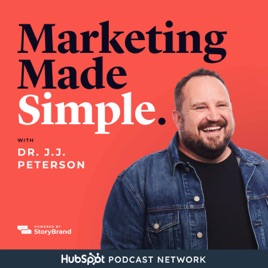
4.6
256
154
Marketing Made Simple
Powered by StoryBrand
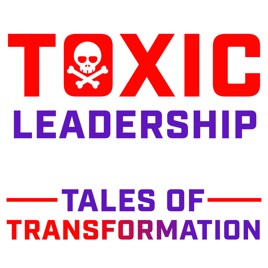
4.8
39
114
Toxic Leadership: Tales of Transformation
Dr. Kevin Sansberry III
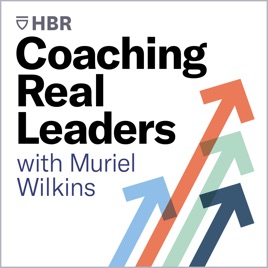
4.7
405
55
Coaching Real Leaders
HBR Presents / Muriel Wilkins

5
3
2
PDA Society Podcast
PDA Society
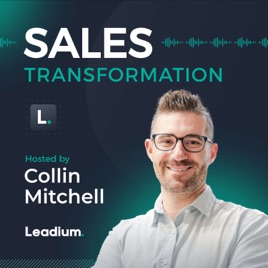
5
2139
723
Sales Transformation
Leadium
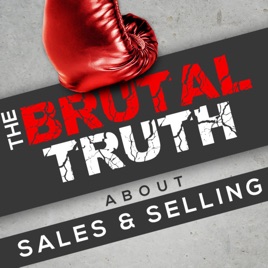
4.8
1100
293
The Brutal Truth about Sales and Selling - We interview the world's best B2B Enterprise salespeople.
Brian Burns
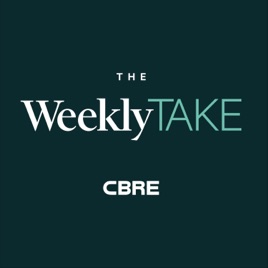
4.7
135
191
The Weekly Take from CBRE
CBRE
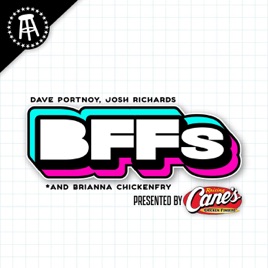
4.7
11536
163
BFFs with Dave Portnoy, Josh Richards, and Brianna Chickenfry
Barstool Sports

4.9
267
101
Confessions of a Top-Producing Real Estate Agent, the Agent Grad School Podcast
Jennifer Myers AgentGradSchool.com
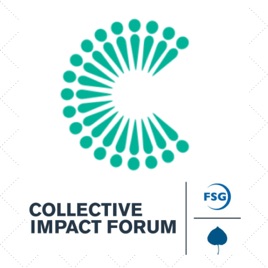
4.6
18
77
Collective Impact Forum
Collective Impact Forum



